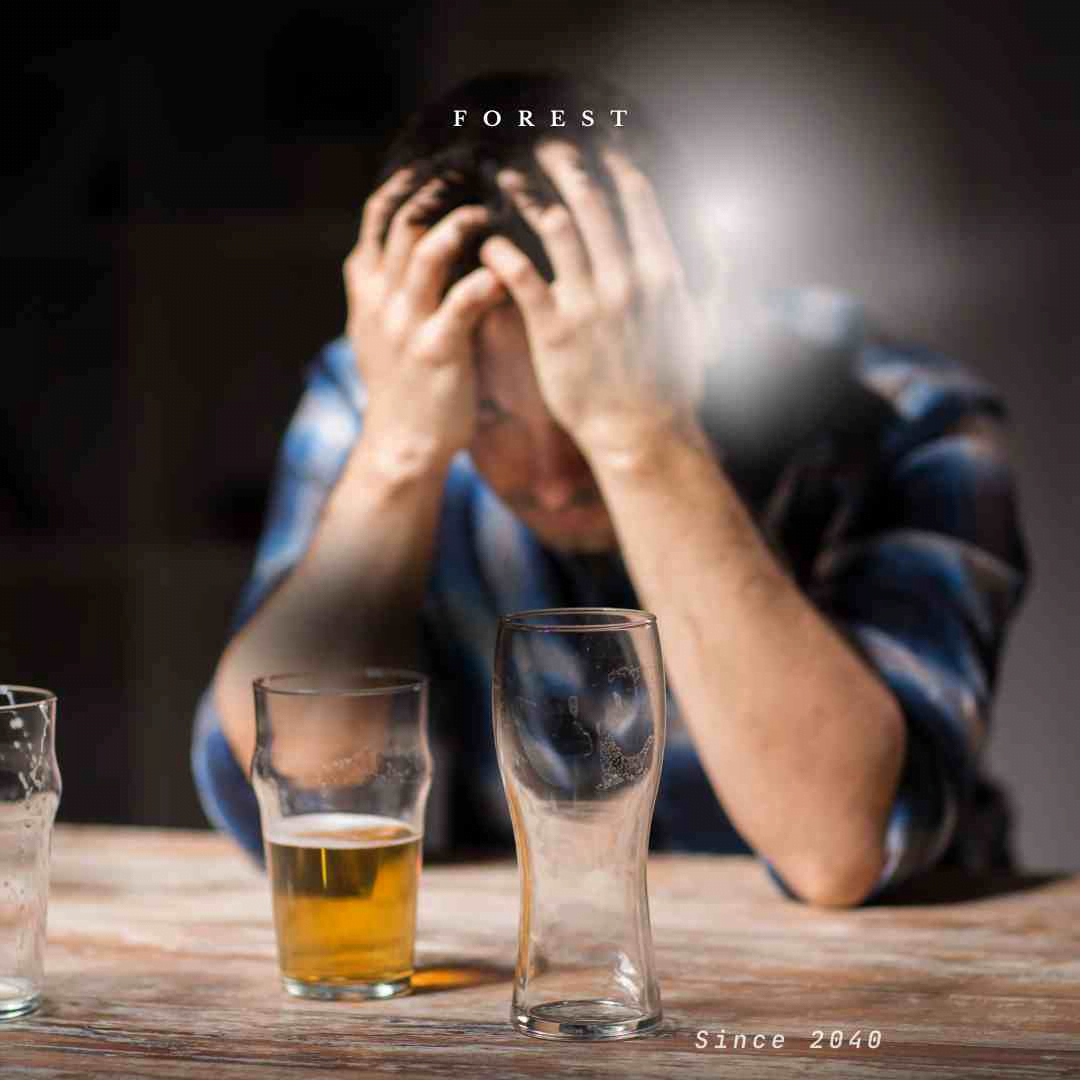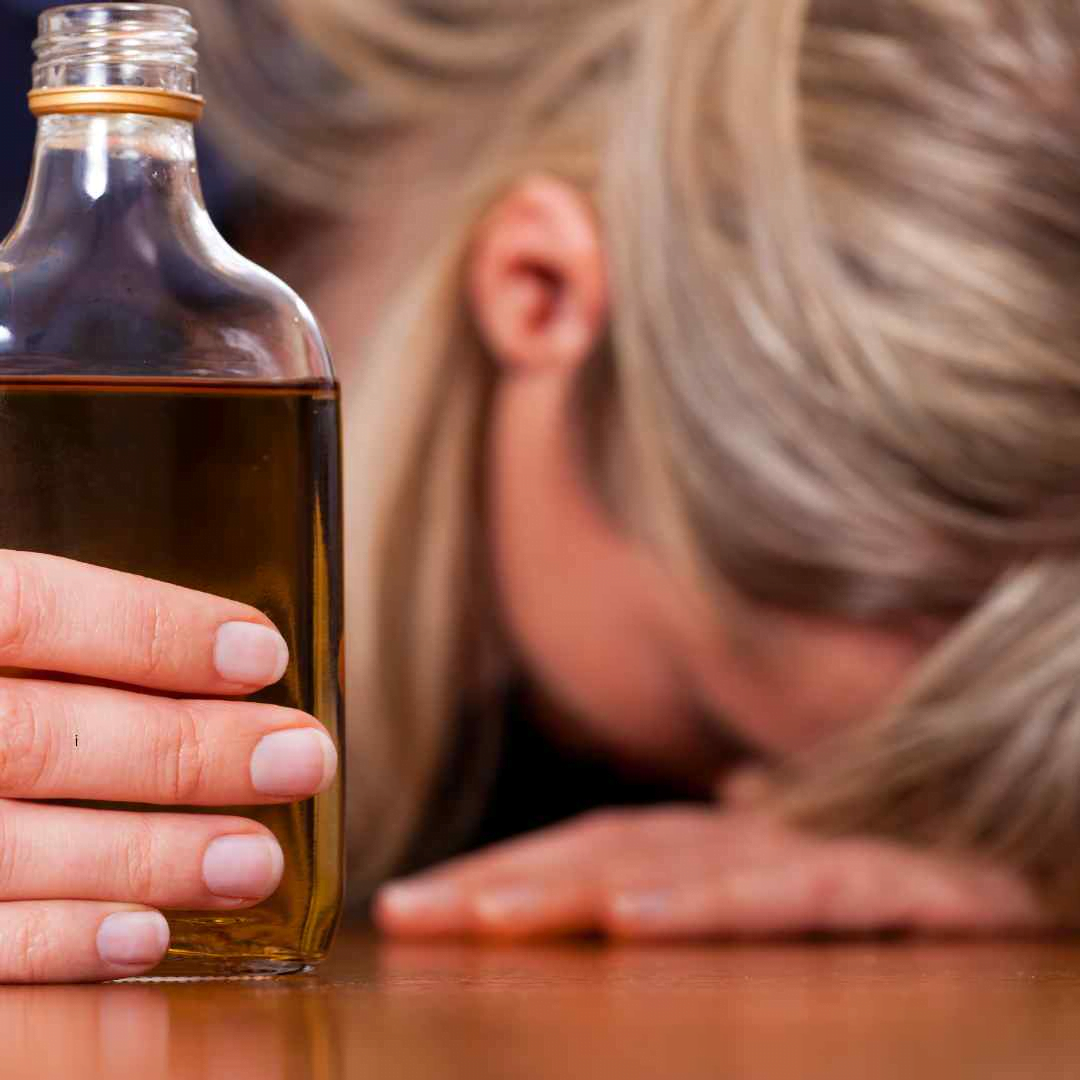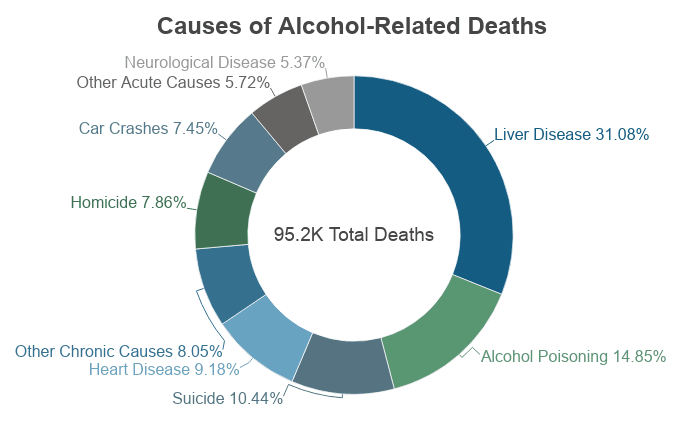If you’re a parent of a teenager, you might be worried about their alcohol use. You may even think that your child is abusing alcohol if they have been drinking heavily or acting like they are drunk.
If this is the case, then it’s important to know what teen alcohol abuse is and how it can affect your child in the long term. Here we explore everything you need to know about teen alcohol abuse treatment:
how it affects teenagers and adults differently, how to treat it, and how to help your child who may have an addiction problem.
Table of Contents
What is teen alcohol abuse?

Teen alcohol abuse refers to the excessive or inappropriate consumption of alcohol by individuals under the legal drinking age. This behavior often includes binge drinking and can lead to substance abuse disorders.
Teens who abuse alcohol are at increased risk for mental health issues, academic problems, and dangerous behaviors such as unprotected sex and motor vehicle accidents. Family history, peer pressure, and environmental factors play significant roles in influencing teen alcohol use.
Recognizing the signs, such as alcohol withdrawal symptoms and changes in behavior, is crucial for family members and health care providers to intervene and provide necessary support.
It’s important to know the warning signs of alcohol abuse. If you or your teen is struggling with alcohol, it’s time to seek help.
The most common warning sign for teens is when they begin drinking as a means of dealing with stress or anxiety. Other signs include:
- Drinking until passing out at least once a month
- Getting into trouble at school or work because of their drinking
- Missing school, work, or other obligations because of their drinking
What are the symptoms of teen alcohol abuse?
The first sign that your teen is abusing alcohol is when they begin drinking at a young age.
Most experts believe that drinking before the age of 15 can be harmful to a child’s brain development and emotional health, so if you notice your teen frequently consuming alcohol, it may be time to talk with them about their habits and where they’re getting the alcohol from.
Another warning sign is when your child begins using alcohol in secret. This can include sneaking drinks at home or hiding bottles or cans around the house so no one will find them (which could result in accidental poisoning).
If this sounds like something your child has done, don’t wait another day before approaching him or her about his behavior—it could save his life!
A third indication of teen alcohol abuse involves excessive drinking on more than one occasion.
If there are signs that your teen has been binge drinking multiple times during the week (e.g., finding empty beer bottles in his backpack), then it’s very likely he’ll need professional help soon before things get worse for him down the road…
Who does teen alcohol abuse affect?
Teenage alcohol abuse is not a disease that affects only a certain type of person. It’s possible for anyone—no matter how old they are or where they come from—to have an alcohol use disorder (AUD).
However, most teenagers who struggle with AUD have the following characteristics:
- They’re male
- They live at home with their parents or other family members
- Parents or other family members have an AUD
How is teen alcohol abuse treated?
Treating teenage alcohol addiction requires a comprehensive approach that addresses the physical, psychological, and social aspects of the condition. A crucial first step is a thorough assessment and diagnosis to determine the appropriate level of care and treatment options for the individual teenager.
For teenagers with severe alcohol addiction, medically supervised detoxification may be necessary to manage withdrawal symptoms and potential complications. This process involves gradually reducing alcohol consumption under medical supervision to minimize the risks associated with abrupt cessation.
Inpatient rehabilitation programs provide a structured and supervised environment where teenagers can receive intensive treatment, including individual and group therapy, educational sessions, family involvement, and recreational activities. These programs are often suitable for individuals with more severe addiction or co-occurring mental health conditions.
Outpatient rehabilitation programs allow teenagers to receive treatment while living at home and attending school. These programs typically involve regular counseling sessions, support groups, and educational interventions. Outpatient treatment is often suitable for individuals with less severe addiction or as a step-down option after completing an inpatient program.
Various therapeutic approaches have been found effective in treating teenage alcohol addiction, such as cognitive-behavioral therapy (CBT), motivational enhancement therapy (MET), and family therapy.
CBT helps teenagers identify and modify unhealthy thoughts, beliefs, and behaviors related to alcohol use while equipping them with coping strategies and relapse prevention skills. MET focuses on enhancing the individual’s motivation to change behavior and is often used with other therapies. Family therapy involves the family in the treatment process to improve communication, resolve conflicts, and provide support for the teenager’s recovery.
Support groups like Alcoholics Anonymous (AA) and SMART Recovery can provide valuable peer support and accountability for teenagers recovering from alcohol addiction. These groups offer a sense of community and help teenagers develop healthy coping mechanisms and social connections.
In some cases, medications may be used to manage withdrawal symptoms or co-occurring mental health conditions. However, the use of medications in treating teenage alcohol addiction is still an area that requires more research.
Holistic approaches such as yoga, meditation, and art therapy can also support the recovery process by promoting relaxation, self-awareness, and emotional expression. These practices can complement therapeutic interventions and help teenagers develop a more balanced and fulfilling lifestyle.
It is important to note that treatment options may vary depending on location and availability. Suppose a teenager is seeking help for alcohol abuse. In that case, it is recommended to contact a healthcare professional, counselor, or local substance abuse hotline for guidance on the available resources in their area.
What are some home remedies for teen alcohol abuse?

You may have heard of some home remedies for teen alcohol abuse. These include:
- Avoidance. Teenagers who drink heavily may also be using drugs and other substances, so if you suspect that your child is abusing alcohol, they probably have other issues as well. If you can reduce their access to alcohol and keep them away from parties where there will be drinking, they won’t have as much opportunity to get into trouble.
- Positive coping mechanisms (healthy ways of dealing with pain). Alcohol is not a good way for teens to manage anger or stress; it only worsens those feelings in the long run! Try talking with your child about how they want to cope when angry or stressed; then help him/her find healthier ways of dealing with those emotions instead of turning to drugs or alcohol.
- Support from family members and friends: The people closest to us play an essential role in our lives. They can help us make good decisions about what we do every day by setting clear expectations for ourselves and encouraging each other when we’re doing well at sticking up for ourselves.
When should I seek medical advice for teen alcohol abuse?
If you or your child is experiencing any of the following symptoms:
- nausea
- vomiting
- blurred vision
- confusion or slurred speech
- unusual behavior (for example, talking loudly, being argumentative)
- blackouts (not remembering what happened during a certain period).

Image: drug abuse statistics
Teen alcohol abuse can have serious long-term effects
If you or your child think you may have an alcohol problem, seek professional help.
Alcohol abuse can lead to serious, long-term health problems. Chronic alcohol use can affect the brain and body in many ways.
In the short term, drinking too much alcohol can cause:
- Drunkenness or intoxication
- Loss of balance and coordination (ataxia)
- Impaired speech, vision, and hearing
- Seizures that may lead to coma or death if untreated
Understanding Alcohol Use Disorder: Signs, Risks, and Treatment
Alcohol use disorder (AUD) is a serious and often misunderstood condition that affects millions of people worldwide. It involves a pattern of drinking alcohol that leads to problems in various aspects of life, including health, relationships, and work. This blog post aims to shed light on AUD, its symptoms, risk factors, and the importance of seeking help.
What is Alcohol Use Disorder?
Alcohol use disorder is a chronic disease characterized by an inability to control drinking despite adverse consequences. Individuals with AUD often experience cravings for alcohol, develop a high tolerance, and suffer withdrawal symptoms when they try to stop drinking. This disorder can range from mild to severe and is influenced by various genetic, psychological, and environmental factors
What Increases the Risk for Alcohol Use Disorder?
Alcohol use disorder (AUD) is influenced by a variety of risk factors. The likelihood of developing AUD increases with the frequency and quantity of alcohol consumption. Here are some key factors that can elevate the risk of AUD:
1. Frequency and Quantity of Alcohol Consumption
Drinking alcohol frequently and in large quantities significantly increases the risk of developing AUD. Binge drinking and excessive drinking are particularly dangerous behaviors that can lead to alcohol dependence. Consuming five or more drinks in a single session is considered binge drinking and can rapidly escalate into a serious problem.
2. Early Age of Initiation
Beginning to drink alcohol at an early age is a strong predictor of future alcohol problems. Underage drinking can interfere with normal brain development and increase the likelihood of substance abuse later in life. Young people who start drinking before the age of 15 are especially at risk.
3. Family History and Genetics
A family history of AUD or other substance use disorders significantly increases one’s risk. Genetic factors play a substantial role, as children of individuals with AUD are more likely to develop the disorder themselves. This genetic predisposition can make some people more susceptible to alcohol addiction than others.
4. Mental Health Issues
Individuals with existing mental health issues such as depression, anxiety, or attention deficit hyperactivity disorder (ADHD) are at a higher risk of developing AUD. Alcohol is often used as a coping mechanism to deal with these conditions, leading to unhealthy alcohol use and dependence. The Mental Health Services Administration emphasizes the importance of addressing underlying mental health problems to prevent substance abuse.
5. Environmental and Social Factors
Environmental factors such as peer pressure, stressful life events, and exposure to alcohol through family members or friends can also contribute to the development of AUD. Social norms and cultural attitudes towards drinking can influence an individual’s drinking habits and increase the risk of excessive drinking.
6. Behavioral Problems
Behavioral issues, including conduct disorder and other behavior problems, are associated with a higher risk of developing AUD. Individuals with these problems may use alcohol as a way to self-medicate, which can lead to dependence and addiction.
7. High-stress Levels
High levels of stress from work, school, or personal relationships can lead to increased alcohol consumption as a way to cope. Stressful environments and a lack of effective coping mechanisms can push individuals toward substance abuse.
8. Availability and Accessibility
The ease of access to alcohol plays a significant role in the development of AUD. Living in environments where alcohol is readily available, and its use is socially acceptable increases the likelihood of heavy drinking and subsequent alcohol problems.
9. Physical and Social Consequences
Experiencing the negative consequences of drinking, such as health problems (e.g., liver disease, high blood pressure), legal issues, or relationship problems, can both be a result of and a contributing factor to the escalation of alcohol use. These consequences often create a vicious cycle where individuals continue to drink despite the adverse effects.
10. Trauma and Abuse
Experiences of trauma, such as physical or emotional abuse, are closely linked to the development of AUD. Alcohol may be used as a way to numb the pain associated with past traumas, leading to dependency.
Symptoms of Alcohol Use Disorder
Recognizing the signs of alcohol use disorder is the first step towards seeking help. Common symptoms include:
- Craving Alcohol: A strong urge to drink alcohol.
- Loss of Control: Inability to limit alcohol intake.
- Tolerance: Needing more alcohol to achieve the same effects.
- Withdrawal Symptoms: Experiencing symptoms like nausea, sweating, and shaking when not drinking.
- Neglecting Responsibilities: Ignoring work, school, or family duties due to drinking.
- Continuing to Drink Despite Problems: Persisting in drinking even when it causes physical, social, or interpersonal issues.
Risk Factors for Developing AUD
Several factors can increase the risk of developing alcohol use disorder:
- Genetic Factors: A family history of AUD can increase the likelihood of developing the condition.
- Environmental Factors: Peer pressure, easy access to alcohol, and cultural norms can contribute to excessive drinking.
- Mental Health Issues: Conditions like depression, anxiety, and attention deficit hyperactivity disorder (ADHD) can lead to substance abuse.
- Starting at an Early Age: Those who begin drinking at a young age are at a greater risk of developing AUD.
- History of Trauma: Experiencing traumatic events can lead to unhealthy alcohol use as a coping mechanism.
The Impact of Alcohol Use Disorder

AUD can have severe and wide-ranging effects on an individual’s life, including:
- Health Problems: Chronic heavy drinking can lead to liver disease, high blood pressure, heart problems, brain damage, and an increased risk of cancers like breast cancer.
- Mental Health: AUD often coexists with mental health disorders such as depression and anxiety, exacerbating both conditions.
- Social Consequences: It can strain relationships with family members and friends, leading to social isolation.
- Legal Issues: Drinking and driving can result in motor vehicle accidents, legal problems, and loss of driving privileges.
- Academic and Occupational Problems: Excessive drinking can lead to poor performance at school or work and even loss of employment.
Addressing Alcohol Use Disorder
Effective treatment for AUD often involves a combination of therapies and support systems:
- Detoxification: The first step is usually to detox the body from alcohol, which should be done under medical supervision due to the risk of severe withdrawal symptoms.
- Counseling and Therapy: Cognitive-behavioral therapy (CBT) and other forms of counseling can help individuals understand their addiction and develop coping strategies.
- Medication: Certain medications can reduce cravings and ease withdrawal symptoms.
- Support Groups: Organizations like Alcoholics Anonymous (AA) provide a community of support and accountability.
- Family Support: Involving family members in treatment can provide emotional support and improve outcomes.
Preventing Alcohol Use Disorder
Preventing AUD involves education and awareness:
- Educate Young People: Informing teens and young adults about the risks of drinking alcohol can prevent early initiation.
- Promote Healthy Coping Mechanisms: Encouraging healthy ways to deal with stress and emotions can reduce reliance on alcohol.
- Limit Access: Policies to reduce the availability of alcohol can help decrease excessive drinking.
Conclusion
So, if you think your teen is abusing alcohol, don’t be afraid to ask questions. If they say no, then ask again in a week or two.
There’s no shame in talking about this stuff as long as you do it with love and concern for their well-being.
And remember: just because your child doesn’t drink now doesn’t mean they won’t start later on down the road.
What you do now can help set them up for success when it comes time for them to make decisions about what’s right for them!
Helpful Resources
1. National Institute on Drug Abuse (NIDA): NIDA is a government-funded research organization that provides information and resources on addiction and substance abuse. Their website offers resources specifically tailored to the pandemic, including information on telehealth and online support groups.
2. Substance Abuse and Mental Health Services Administration (SAMHSA): SAMHSA is a government agency that provides information and resources on addiction and mental health. Their website offers resources specifically tailored to the pandemic, including a national helpline for individuals who are struggling with addiction or mental health issues.
3. Alcoholics Anonymous (AA): AA is a support group for individuals struggling with alcohol addiction. AA has moved many of its meetings online, providing a safe and accessible way for individuals to connect with others who understand their struggles.
4. Narcotics Anonymous (NA): NA is a support group for individuals struggling with drug addiction. Like AA, NA has moved many of its meetings online, providing a safe and accessible way for individuals to connect with others who understand their struggles.
5. Mental health professionals: Mental health professionals such as therapists and counselors can provide individualized support and guidance for individuals struggling with addiction during the pandemic. Many mental health professionals offer teletherapy, a form of therapy conducted over the phone or through video conferencing.
Citations:
[1] https://clearforkacademy.com/blog/alcohol-addiction-in-teens-a-complete-guide/
[2] https://alcohol.org/teens/for-adolescents/
[3] https://www.ncbi.nlm.nih.gov/books/NBK37585/
[4] https://www.ncbi.nlm.nih.gov/pmc/articles/PMC4113213/
[5] https://www.mayoclinic.org/diseases-conditions/alcohol-use-disorder/diagnosis-treatment/drc-20369250


